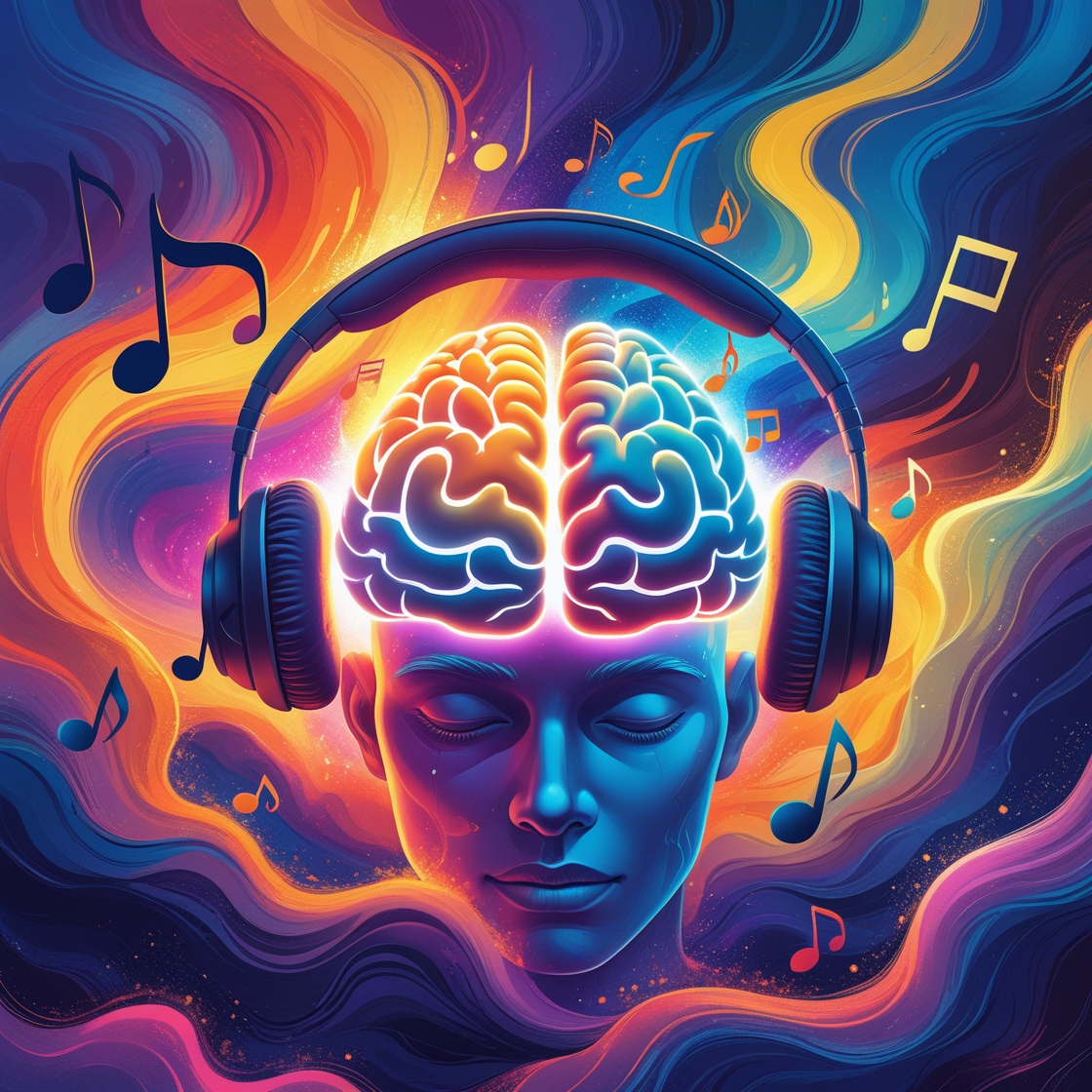Music is a universal language that resonates with people from all walks of life. From the soothing melodies of classical compositions to the energetic beats of pop songs, music has a profound impact on our minds. Over the years, researchers have delved into music and the brain research, uncovering its ability to influence our emotions, cognitive functions, and even physical health. However, music can have both positive and negative effects on the brain, depending on various factors.
Benefits of Music on the Brain
Music has been shown to have a range of positive effects on brain function. Here are the top 10 benefits of listening to music:
- Enhances Memory: Listening to music can stimulate the hippocampus, a region of the brain responsible for memory and learning.
- Improves Mood: Music activates the brain’s reward center, releasing dopamine and reducing feelings of anxiety and depression.
- Boosts Focus: Certain types of music, like classical or instrumental, help improve concentration and productivity.
- Relieves Stress: Soothing music lowers cortisol levels, reducing stress and promoting relaxation.
- Encourages Social Bonding: Music fosters social connections, especially in group activities like choirs or bands.
- Aids Sleep: Slow-tempo music promotes relaxation and better sleep quality.
- Stimulates Creativity: Music’s rhythms and patterns inspire innovative thinking.
- Supports Pain Management: Music therapy has been used to alleviate chronic pain and discomfort.
- Enhances Physical Performance: Listening to energetic music can improve endurance during exercise.
- Promotes Neuroplasticity: Music stimulates neural pathways, aiding recovery from brain injuries.
How Does Music Affect the Brain?
Music’s influence on the brain involves complex neurological processes. Here’s a breakdown of what does music do to the brain and body:
- Emotional Regulation: Music engages the limbic system, the brain’s emotional center, making us feel joy, sadness, or excitement.
- Cognitive Function: Music activates the prefrontal cortex, enhancing decision-making and problem-solving skills.
- Motor Coordination: Rhythmic music stimulates the cerebellum, improving movement and coordination.
Positive and Negative Effects of Music on the Brain
While music offers numerous benefits, it’s not without its downsides. Below is a table summarizing the positive and negative effects of music on the brain:
| Aspect | Positive Effects | Negative Effects |
|---|---|---|
| Emotional Impact | Reduces stress, boosts mood | Can amplify negative emotions in certain contexts |
| Cognitive Function | Improves focus, memory, and learning | Distracts from tasks if too loud or complex |
| Physical Health | Alleviates pain, enhances physical performance | Prolonged loud music may lead to hearing issues |
| Social Interaction | Encourages bonding and teamwork | Excessive use can lead to social isolation |
The Impact of Music on the Brain Speech
Music’s ability to enhance speech and language skills is a significant area of music and the brain research. Studies have shown that:
- Children exposed to music training have improved phonemic awareness and verbal skills.
- Stroke patients undergoing music therapy regain speech abilities faster than those without music intervention.
- Bilingual individuals often have heightened neural responses to music, aiding in language processing.
How Music Affects the Brain Negatively
While music has many benefits, it’s essential to be aware of how music affects the brain negatively:
- Overstimulation: Constant exposure to loud or fast-paced music can lead to mental fatigue.
- Emotional Overload: Listening to sad or aggressive music for extended periods can exacerbate negative emotions.
- Reduced Attention Span: Complex music with lyrics can distract from tasks requiring focus.
- Hearing Damage: Prolonged exposure to high decibel levels can impair auditory health.
- Sleep Disruption: Upbeat or high-tempo music before bedtime can interfere with sleep cycles.

Music and the Brain Research
Extensive studies highlight the intricate relationship between music and brain psychology. Here are some notable findings:
- MRI scans reveal that listening to music activates multiple brain regions simultaneously, including those responsible for emotion, memory, and motor control.
- Patients with Alzheimer’s disease often respond positively to music, triggering memories that seemed lost.
- Professional musicians show enhanced brain connectivity, particularly in areas related to motor skills and auditory processing.
For more insights on health and wellness, visit our blog at Healthy Vibe Hub.
FAQ: How Music Helps the Brain Psychology
Q1: What does music do to the brain and body?
Music stimulates emotional, cognitive, and physical responses, improving mood, memory, and motor skills while reducing stress.
Q2: How does music affect the brain?
Music influences brain activity by engaging regions responsible for emotions, learning, and coordination.
Q3: What are the benefits of music on the brain?
Music enhances memory, boosts mood, reduces stress, improves focus, and promotes neuroplasticity.
Q4: How does music affect the brain negatively?
Prolonged exposure to loud or emotionally intense music can lead to mental fatigue, hearing damage, and emotional distress.
Q5: What is the impact of music on brain speech?
Music therapy enhances speech recovery in stroke patients and improves language skills in children.



There can be you and are right.
Actually. Prompt, where I can find more information on this question?
Talent, you will tell nothing..
Yes, really. And I have faced it. Let’s discuss this question. Here or in PM.
Also that we would do without your brilliant idea